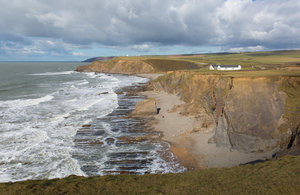Businesses give back £1.3 billion in furlough cash
- New statistics show that businesses have returned £1.3 billion in furlough cash, with £300 million returned in the last three months.
- These repayments are coming in as more employees return to work and the economy recovers.
- The number of people on furlough has fallen to the lowest level since the start of the pandemic, with 340,000 people moving off the scheme in July alone.
Figures released today show that firms who have overclaimed or decided they no longer need payments received through the Coronavirus Job Retention Scheme handed back £300 million in the last three months.
In total, they have repaid £1.3 billion to HMRC since July 2020 through adjustments to claims and the voluntary disclosure service, which will continue into 2022.
Chancellor of the Exchequer, Rishi Sunak, said:
This Government stepped in to help when people needed it most, supporting nearly 12 million jobs through furlough. This worked, nearly 2 million fewer people are now expected to be out of work in the UK than previously feared.
Now with our recovery underway it is heartening to see that £1.3 billion in furlough grants have been returned as the economy recovers.
HMRC is also cracking down on those who have fraudulently claimed furlough through its 1,250-strong Taxpayer Protection Taskforce.
With businesses reopening and employment rising to near pre-pandemic levels thanks to the successful rollout of the vaccination programme and the Government’s roadmap out of the pandemic, the number of people on furlough has fallen to a record low of 1.6 million. Around 340,000 people left the scheme in July, with more than a third aged between 18 and 34 – a clear sign the government’s Plan for Jobs is working.
The furlough scheme has protected nearly 12 million jobs and supported more than 1.3 million businesses, with 910,000 jobs in Scotland protected, 470,000 jobs in Wales and 280,000 jobs in Northern Ireland, securing livelihoods in communities across the United Kingdom.
Furlough was the right thing to do at the height of the pandemic, when necessary health restrictions were in place – this way we were able to protect lives and livelihoods. As the economy reopened and businesses started to trade again its right that employees can get back to work.
The government is doubling down on its Plan for Jobs as the UK economy rebounds – focusing our support on giving people the skills and opportunities they need to succeed in the jobs of tomorrow through schemes including Kickstart, Restart and apprenticeships.
Further information:
Customers can make a repayment online by card through HMRC’s online repayment service or by bank transfer.
The CJRS closes on 30 September. Employers need to make their September claims by 14 October.

